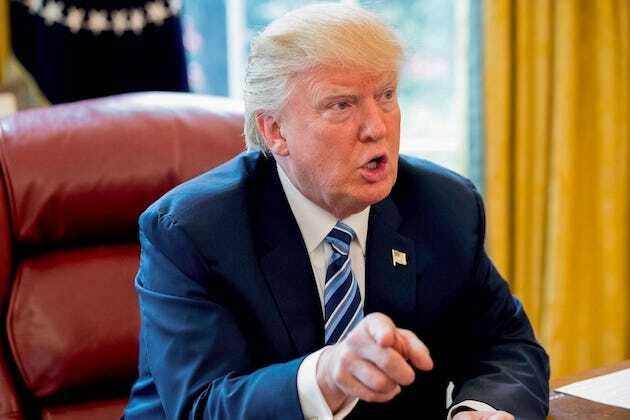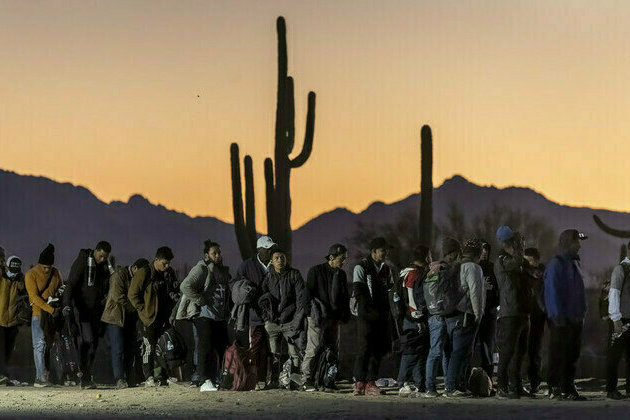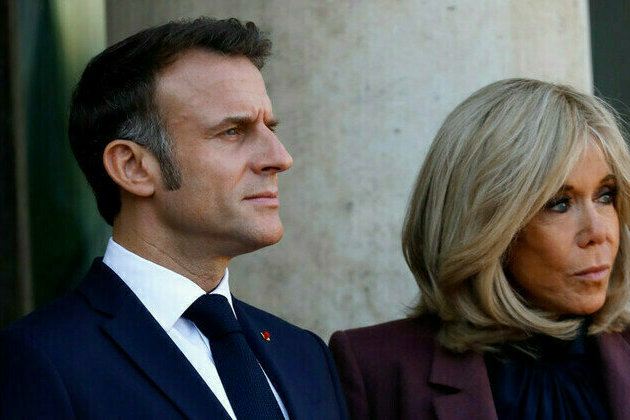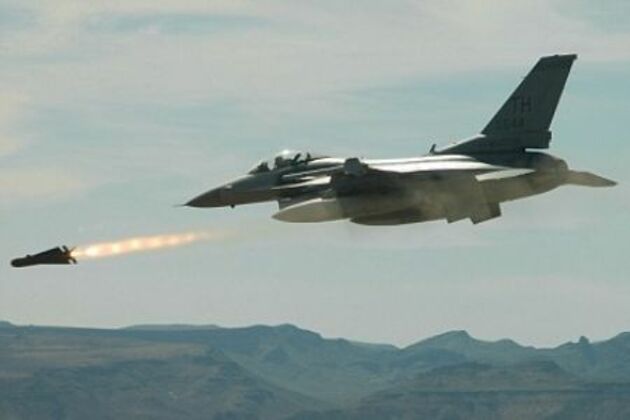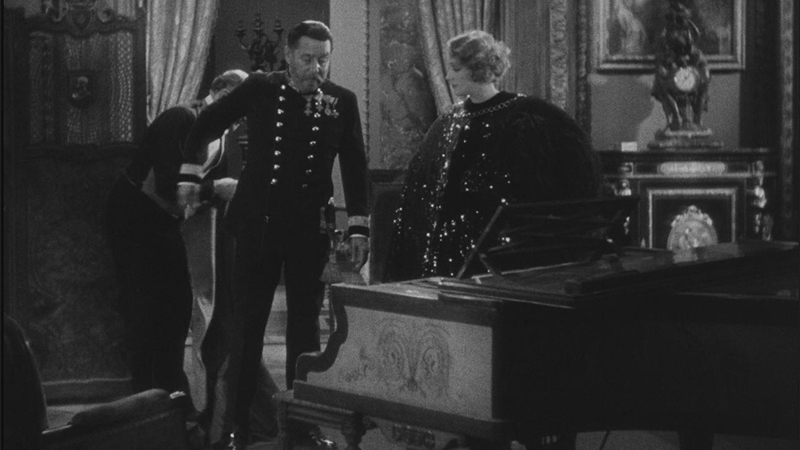Brussels Unveils $170 Billion Plan To Boost EU Defense Capabilities
RFE
27 May 2025, 03:31 GMT+10
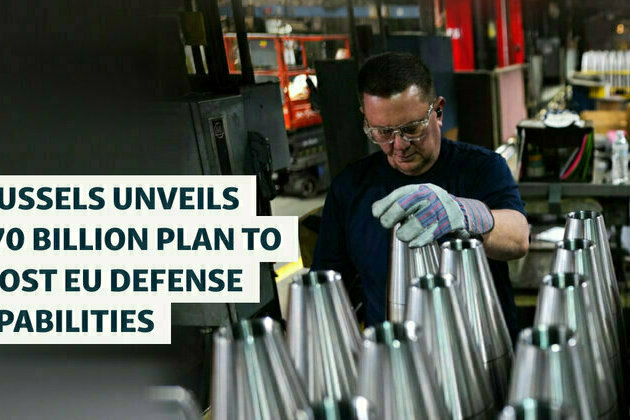
On May 27, the European Union will formally approve its 150 billion euro ($170 billion) scheme to boost defense spending in the bloc.
The so-called SAFE (Security Action For Europe) regulation was first proposed in March by the European Commission in response to calls from member states for financial and political support to meet new defense targets pushed by NATO -- and to potentially step in for Ukraine should the United States shift its focus elsewhere.
The final regulation, seen by RFE/RL, spells out clearly that the threats posed by Russia and Belarus are of particular urgency and relevance, and need to be countered quickly.
Due to the time required to develop defense products and scale up industrial production capacity across the EU, the regulation also says it will be vital for the union to start supporting member states as soon as possible so that they can place orders very rapidly.
Brussels first responded to the member states calls by triggering the EUs national escape clause for military spending, meaning that expenditure for items like weapons and ammunition wont be accounted for in the bloc's punishment mechanism for countries breaching EU spending limits.
SEE ALSO:
Former NATO Chief Rasmussen Says Plan For European Force In Ukraine 'Moving Too Slowly'
That created fiscal leeway -- but member states also need the cash as soon as possible.
With several capitals keen to access the proposed funds quickly -- and with no need for unanimity or consent from the European Parliament -- EU ambassadors approved the new legislation on May 21, with only Hungary opposed.
The new scheme functions the same way as the EUs recent COVID-19 recovery program, which was worth 800 billion euro ($920 billion).
For SAFE, the bloc will use its triple-A credit rating to raise the required 150 billion euro on the markets and then loan it to member states. This will be much cheaper than having most EU members trying to generate the funds themselves by borrowing separately.
Five EU countries -- Denmark, Germany, Luxembourg, the Netherlands, and Sweden -- currently enjoy a triple-A rating, so they most likely wont need to participate in the scheme, leaving more of the potential loans for poorer members.
Strings Attached
The fact that the loans have a maximum duration of 45 years, dont need to be serviced in the first decade, and countries wont have to pay VAT on the equipment purchased are other advantages that Brussels hopes will trigger a European defense splurge.
But there are, of course, some strings attached to all this.
First of all, many indebted southern member states complain that unlike the COVID recovery scheme, which also included a grant component, this initiative is exclusively a loan, which will place an even bigger burden on already strained public finances.
The SAFE program could boost the production of weapons within the EU, such as this French-made howitzer. (file photo)
SAFE is also supposed to stimulate joint defense procurements between countries, with the European Commission keen to use the instrument to create a proper European defense market instead of the nationally fragmented one that largely exists today.
Countries can apply for loans without teaming up with another state during the first year only. After that two or more countries must apply jointly. The scheme expires in 2030.
In order to ensure the money is fairly distributed, the share of loans granted to the three member states getting the biggest allowance should not exceed 60 percent of the entire 150 billion euro allocated to the scheme.
But the big issue in the past month has been who can participate in SAFE -- balancing various member states' desire to boost domestic production with the reality that not every component can be made in the EU.
For starters, the countries in theEuropean Free Trade Association(EFTA) -- Iceland, Liechtenstein, Norway, and Switzerland -- are included in the scheme. The same is true of EU candidate country Ukraine.
The regulation justifies their inclusion by citing those countries close partnership with the Union in industrial defense production and the fact that Ukraine is directly faced with Russias ongoing war of aggression.
'Brussels Compromise'
Even so, there have been grumbles.
The United States, in particular, has complained about being locked out of this process.
And many EU member states -- still keen to maintain transatlantic military links while also keeping other close partners involved in aspects of SAFE -- have also lobbied hard to open up the scheme to further outside participation.
In the end, a 65-35 rule was settled on. That means that 65 percent of the value of the weapon acquired has to be generated in the EU, the four EFTA countries, or Ukraine. The other 35 percent can be produced elsewhere, such as in the United States.
But it gets a bit more complicated.
If a country has a Security and Defense Partnership (SDP) with the EU, 65 percent of the value of the weapon can come from that state.
SEE ALSO:
New EU-UK Agreements Have Common Thread: Russia
The United Kingdom recently penned such a deal with the bloc -- and Albania, Japan, Moldova, North Macedonia, and South Korea also have similar deals in place.
Ultimately, as one EU official who spoke to RFE/RL put it, the upshot is a classic Brussels compromise -- a rather big deal has been struck but the money wont start flowing until everyone, including many outside the family, gets their fair share.
 Share
Share
 Tweet
Tweet
 Share
Share
 Flip
Flip
 Email
Email
Watch latest videos
Subscribe and Follow
Get a daily dose of Bristol Star news through our daily email, its complimentary and keeps you fully up to date with world and business news as well.
News RELEASES
Publish news of your business, community or sports group, personnel appointments, major event and more by submitting a news release to Bristol Star.
More InformationUnited Kingdom
SectionTrump re-ignites trade war, targets Europe in extraordinary attack
WASHINGTON, DC - U.S. President Donald Trump re-ignited his trade war on Friday with an extraordinary attack on the European Union...
Brussels Unveils $170 Billion Plan To Boost EU Defense Capabilities
On May 27, the European Union will formally approve its 150 billion euro ($170 billion) scheme to boost defense spending in the bloc....
Passport to nowhere: Team Trumps new deportation game show
Washington is trying to outsource its migration problem to countries where people can just be forgotten You know when you're a kid...
Macron explains slap from wife
The French president has said the viral clip of Brigitte pushing his face was just joking around French President Emmanuel Macron...
Indy 500 runner-up Marcus Ericsson penalized, now 31st
(Photo credit: Bob Goshert-USA TODAY Network via Imagn Images) IndyCar announced penalties for three drivers and their teams Monday...
Car plows into crowd at Liverpool football celebrations
A vehicle collided with a number of pedestrians in the city center, local police have confirmed A car has plowed through a dense...
International
SectionEU probes Visa, Mastercard fees amid antitrust scrutiny
BRUSSELS, Belgium: European Union antitrust regulators are examining fees imposed by payment giants Visa and Mastercard, Bloomberg...
US Army to list only birth sex in transgender soldiers' records
WASHINGTON, D.C.: The U.S. Army plans to change the records of transgender soldiers to list only their sex at birth, according to a...
US FAA orders flight reductions at Newark Airport to ease congestion
WASHINGTON, D.C.: The Federal Aviation Administration (FAA) said this week that it will require airlines to reduce the number of flights...
Nine children from 1 family die as Israel Air force pilots hit 100 targets in Gaza
GAZA - The home of a doctor working in the emergency room at the Nasser Medical Complex in southern Gaza was struck by Israel Air...
Universal unveils Epic Universe to challenge Disney’s dominance
ORLANDO, Florida: For years, Universal Orlando played second fiddle to Disney's sprawling empire in Central Florida. Now, with the...
Biden-era fuel rules face pushback over EV inclusion
WASHINGTON, D.C.: The U.S. Transportation Department is expected to say that fuel economy rules created under President Joe Biden went...

